A Seven-Week Online Course
Individuals, families, teams, organizations, communities, and societies are all human systems nested within larger systems. Living systems change for better or worse without intentional or deliberate efforts, sometimes in profound ways. However, a portal to transformative change also opens when a system begins to be aware of itself. There is power and magic to systems change through collective intention and collaborative learning when there is systemic awareness of possibilities, including unintended consequences.
This course introduces principles, perspectives, and practices for the application of awareness-based practices that empower mutual and aware initiatives for transforming individual lives within complex living systems.
Convening Faculty
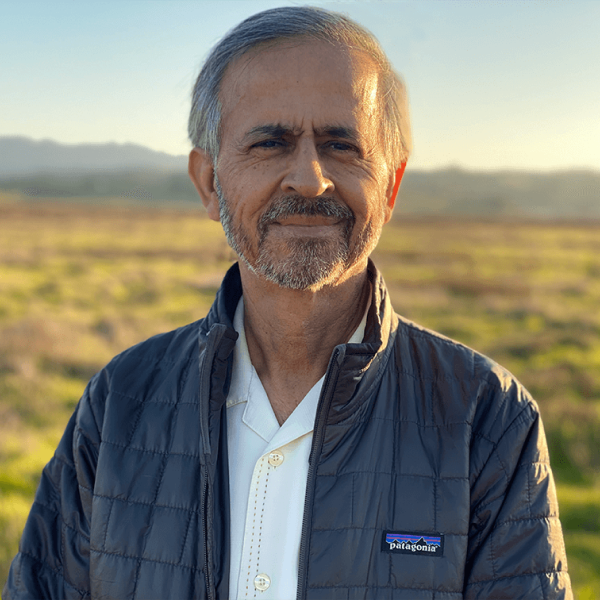
Aftab Omer
Aftab Omer, PhD is the president of Meridian University which offers degree and professional programs globally, emphasizing the power of transformative learning.
He is a sociologist, psychologist, developmentalist, and futurist. Raised in Pakistan, India, Hawaii, and Turkey, he was educated at the universities of M.I.T, Harvard and Brandeis. His publications have addressed the topics of transformative learning, dialogic capability, developmental power, cultural leadership, civil society, generative entrepreneurship, and the power of imagination.
Aftab’s advising work focuses on team development and on leveraging the creative potentials of conflict, diversity, and complexity. Formerly the president of the Council for Humanistic and Transpersonal Psychologies, he is a Fellow of the International Futures Forum and the World Academy of Arts and Sciences.
Contributing Faculty
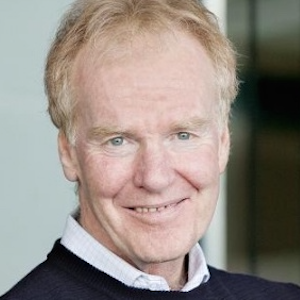
Peter Senge
Peter Senge has been at the forefront of organizational learning since publishing his classic text The Fifth Discipline in 1990, which provided theories and methods to foster aspiration, develop reflective conversation, and understand complexity in service of shaping learning-oriented organization cultures. In 1997, Harvard Business Review named the learning organization as one of “the seminal business ideas of the prior 75 years.”
Throughout his career, Peter has been asking, “how do we create the conditions for people to work together at their best, cultivating the innate systems intelligence that is our birthright but is all but lost in modern culture?” As an engineer by training, his work has always emphasized tools and methods, not for their own sake but as vehicles for building individual and collective capacities.
Starting with the creation of SoL (the Society of Organizational Learning) in 1997, he has focused on developing learning communities within and especially among organizations, as a way to bring about deep change that individual organizations are unable to achieve working alone. This resulted in the SoL Sustainability Consortium in 1998, pioneer businesses who saw social and ecological imbalances shaping the future, the Sustainable Food Lab in 2002, many of the world’s largest food companies and NGOs working together to make sustainable agriculture the mainstream system, and numerous learning communities in primary and secondary education, leading up to the present global Compassionate Systems community.
Peter graduated from Stanford University with a B.S. in engineering. He holds an M.S. in social systems modeling and a PhD in management from the MIT Sloan School of Management. His publications include The Fifth Discipline: The Art and Practice of the Learning Organization (1990), The Fifth Discipline Fieldbook (1994), The Dance of Change (1999), Schools that Learn: A Fifth Discipline Fieldbook for Educators, Parents, and Everyone Who Cares about Education (2000, 2010), Presence: Human Purpose and the Field of the Future (2004, 2008), and The Necessary Revolution: How Individuals and Organizations Are Working Together to Create a Sustainable World (2008).
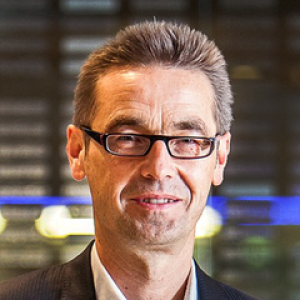
Otto Scharmer
Otto Scharmer is a Senior Lecturer in the MIT Sloan School of Management and co-founder of the Presencing Institute. He chairs the MIT IDEAS program for cross-sector innovation and introduced the concept of “presencing”—learning from the emerging future—in his bestselling books Theory U and Presence (the latter co-authored with Peter Senge and others). His most recent book, The Essentials of Theory U, summarizes the core principles and applications of awareness-based systems change.
In 2015, he co-founded the MITx u.lab and in 2020 the GAIA journey (Global Activation of Intention and Action), both of which promote a worldwide ecosystem of transformational change. Most recently, he and United Nations colleagues co-hosted the Global Dialogues on Transforming Systems. With his colleagues he co-created the Action Learning Lab for change makers across UN agencies, as well as a set of SDG Leadership Labs that build capacity for leading transformational change.
Otto earned PhD in economics from Witten/Herdecke University in Germany. He is a member of the UN Learning Advisory Council for the 2030 Agenda, the World Future Council, and the Club of Rome’s High-Level 21st Century Transformational Economics Commission. He has won the Jamieson Prize for Teaching Excellence at MIT and the European Leonardo Corporate Learning Award. In 2021 he received the Elevating Humanity Award from the Organizational Development Network.
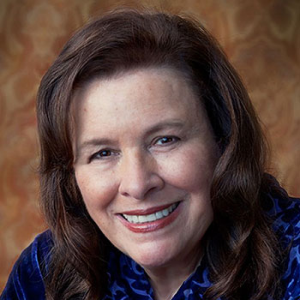
Jean Houston
The Chancellor of Meridian University, Dr. Houston is a visionary researcher who has authored over 40 books and worked intensively in even more cultures, lectured in over 100 countries, and worked with major organizations such as UNICEF and NASA. She has been an advisor to numerous world leaders, and the past international consultant for the United Nations. Dr. Houston's book, A Passion for the Possible, was an expansive compliment to her inspiring PBS special of the same name. Dr. Houston has served on the faculties of Columbia University, Hunter College, Marymount College, The New School for Social Research, and the University of California. She holds doctoral degrees in both psychology and religion.
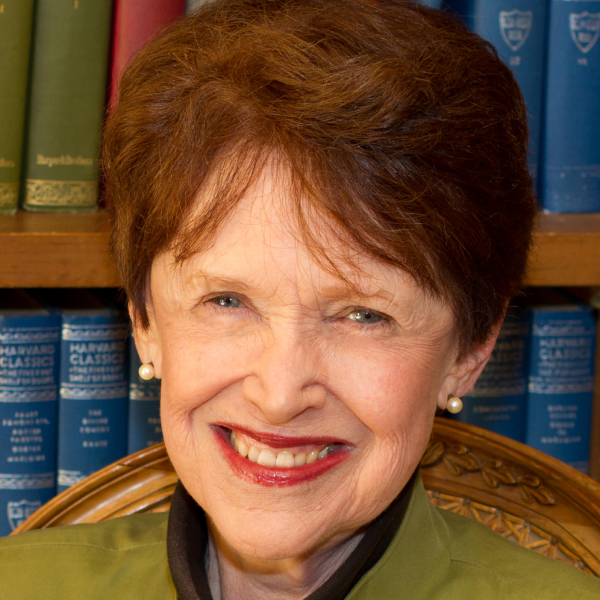
Riane Eisler
Riane Eisler, JD, PhD (hon), is internationally known as a systems scientist, cultural historian, futurist, and attorney. She is president of the Center for Partnership Systems (CPS) and Editor-in-Chief of the Interdisciplinary Journal of Partnership Studies at the University of Minnesota. Dr. Eisler pioneered the expansion of human rights theory and action to include women and children, and her research, writing, and speaking has transformed the lives of people worldwide. She keynotes conferences internationally and consults for governments on Partnerism and the Partnership model. She is the author of numerous books, including Nurturing Our Humanity: How Domination and Partnership Shape Our Brains, Lives and Future (Oxford University Press, 2019) and The Chalice and The Blade: Our History, Our Future (now in its 57th US printing, and in 27 foreign language editions). Her The Real Wealth of Nations: Creating a Caring Economics was hailed by Nobel Peace Laureate Archbishop Desmond Tutu as "a template for the better world we have been so urgently seeking" and inspired the development of CPS’s Social Wealth Index, showing the economic return from investing in caring for people, starting at birth, and caring for our natural life-support systems. For more information see www.centerforpartnership.org, www.partnerism.org, & www.rianeeisler.com
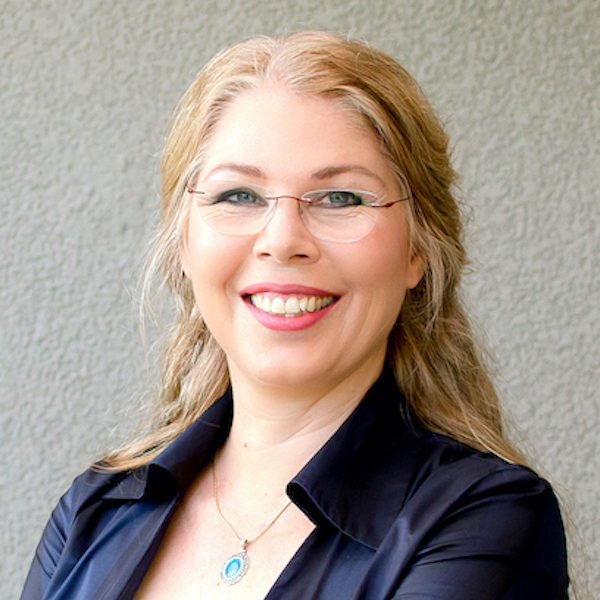
Anneloes Smitsman
Dr. Anneloes Smitsman, PhD, LLM, is a visionary scientist, futurist, system architect, and leadership catalyst for the transition to a Thrivable Civilization. She is the Founder and CEO of EARTHwise Centre. She is the co-author of the #1 Amazon Bestseller “The Quest of Rose,” the first book of the “Future Humans Trilogy” with Dr. Jean Houston, and is the author of the Amazon Bestseller “Love Letters from Mother Earth – The Promise of a New Beginning”, as well as many scientific articles and chapters in international peer-reviewed journals and books. She is the lead author of the r3.0 Educational Transformation Blueprint, as well as the lead architect of the SEEDS Constitution, and an architect and researcher of Hypha for co-developing the Regenerative Renaissance tools, currencies, systems, and cultures. Her unique transformation programs and practices have empowered thousands of people and organizations from around the world.
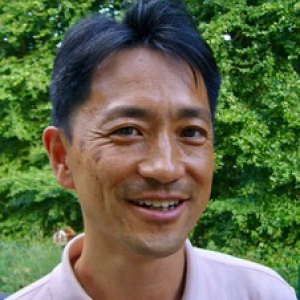
Kazuma Matoba
Kazuma was born in Kobe/Japan and studied Linguistics and International Politics at Sophia University in Tokyo. After his PhD study in Germany he has taught and researched at several Universities in Japan and Germany. Since 2018 he is Professor for intercultural education at Witten/Herdecke University in Germany. He is co-founder of Institute for Global Integral Competence (www.ifgic.org), managing director of Academy of Inner Science Graduate Program and Master of Arts in Inner Science at Ubiquity University. One of his research topics is “Global Social Witnessing”.
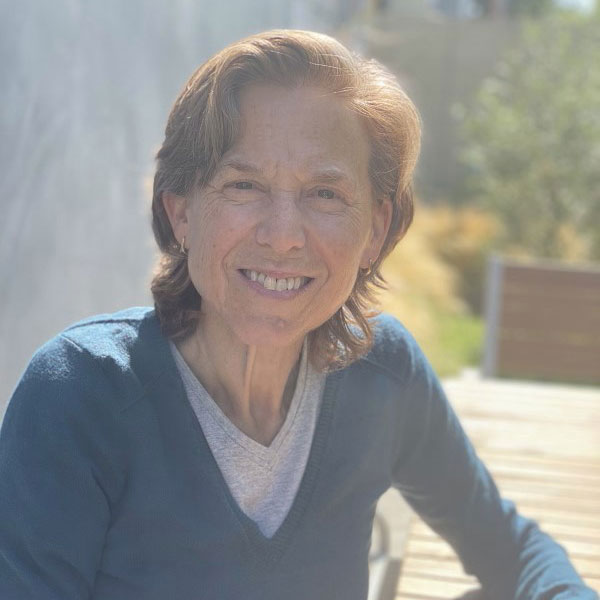
Melissa Schwartz
Melissa Schwartz, PhD is the Chief Academic Officer at Meridian University where she guides integrally-oriented programs in Education, Business, and Psychology. The Director of Meridian’s Center for Transformative Learning, Melissa is dually licensed as both a psychologist and as a Marriage and Family Therapist (MFT). She serves as a reviewer for the American Psychological Association’s Journal, Psychology of Women Quarterly, and the California Psychological Association’s Office of Professional Development. As well, she serves as a Subject Matter Expert for California’s Board of Behavioral Sciences in the continual development of the state’s MFT licensure examination. Melissa’s research interests are in the areas of adult development, the psychology of women, integral transformative assessment, and the role of culture in transformative learning.
Course Modules
Week One
Systems Within Systems: Life in a Holonic Cosmos
- Interdependence and Entanglement
- The Rising Tide: Life Thrives Within Eco-Systems
- Aliveness at the Edge: Boundaries, Sensitivity, Permeability and Feedback
- Differentiating System Levels: Can Change Be Planned? Predicted?
Week Two
Fields Within Fields: Intimations of Relational Entanglement
- Things and No Things: Quantum Fields and Webs of Relationship
- The Cultural Dynamics: Archetypes, Symbols and Meaning
- The Challenge of the Bootstraps: Perceiving the System
Week Three
Grooves Within Grooves: Habits within Habits, Patterns within Patterns
- Character Persists: Habits and Patterns are Like Stuff
- Poetics of Change: Negotiating the Homeostatic Imperative
- Systems Have Distinct Action-Logics
Week Four
Structures Within Structures: Surfing the Transformative Imperative
- Development Happens: Life Makes Structures
- There are no Change-Makers: Resistance is Functional
- Is Goodness Good Enough?: Why There is Systemic Violence and Evil
- Models and Theories of Change: Theory U and Spiral Dynamics
Week Five
Purposes Within Purposes: When Awareness Leads
- Awareness of Self and Others: Leadership is Deeper Participation
- Awareness as Catalyst
- Dialogue: The Collective Nature of Thought
- The Heart Speaks Uniquely
- The System is Us: The “Full“ in Taking Full Responsibility
Week Six
Levels Within Levels: The Alchemy of Complexity
- Can You Kiss a System?: Irony, Paradox and System Awareness
- From Awareness of Systems to System Awareness: Enhancing System Capability
Week Seven
Possibilities Within Possibilities: The Unknown Shores of Emergence
- Trust in Generative Emergence: Bifurcating Towards Flourishing
- The Winds of Grace: Awareness of Developmental Well-being
- Imaginal Process: “Imagination Bodies Forth the Forms of Things Unknown”
- Domination is the Enemy of Transformation: The Force of Transformative Learning
- World as System, World as Lover: Democracy and Deep Participation
Online Course Format
Course Structure
- Seven-week online course through October 31, 2021
- Six live 75-minute Zoom sessions with faculty held Thursdays at 9:00 am PT (Pacific Time) and recorded for participants who cannot join every session live
- Resources, networking, and emergent community outcomes
- Content and collaboration via Meridian's social learning platform
Course Schedule
- Course begins asynchronously via the Pivot collaboration platform, participants begin engaging with course resources and activities
- September 23 at 9 am PT - First live course session
- September 30 at 9 am PT - Second live course session
- October 7 at 9 am PT - Third live course session
- October 14 at 9 am PT - Fourth live course session
- October 21 at 9 am PT - Fifth live course session
- October 28 at 9 am PT - Sixth live course session
- October 31 - Course ends, participants continue engagement via learning platform’s social group
Course Fees
$250, including the synchronous course video calls (with recordings), online learning platform access, participation in the course learning community, plus course resources and written activities.
Accreditation
Meridian University is accredited by the Western Association of Schools and Colleges (WASC) - a higher education accreditor recognized by the United States Department of Education. WASC is also the accreditor for Stanford University, UCLA, and the University of California at Berkeley.
Frequently Asked Questions
Meridian’s online courses are conducted via the University's own learning platform.
Our online courses promote community learning, through strong interactive engagement with fellow students and faculty as well as live video sessions with faculty.
You will need an email account, a high-speed internet connection, and access to a computer, iOS or Android device.
If you are planning to attend the course video calls live, you will need a webcam and microphone for your device. (Course video calls are conducted with participants video-enabled.)
Live 75-min video sessions with faculty and fellow students will be conducted throughout the course. Each week's live video call will be recorded and posted on the course platform.
Video presentations, readings, discussions and learning activities will be accessible asynchronously and may be completed on participants' own schedule. Course resources and recordings will remain available up to 30 days after the close of the course.
Full refunds are available until two (2) days before the course begins, by request via email.
You do not need to apply to a Meridian graduate degree program to take this online course. This course is one of Meridian’s open-enrollment courses
The course support team will be available to assist from start to finish. Please send your questions/requests/issues to openenrollment@meridianuniversity.edu
Convening faculty generally lead each live session. Contributing faculty typically contribute in one of the live course sessions. Course resources address the work of both convening and contributing faculty.
Meridian has institutional and federal financial aid options for our graduate degree programs. This open enrollment course does not have financial aid or payment plans available.